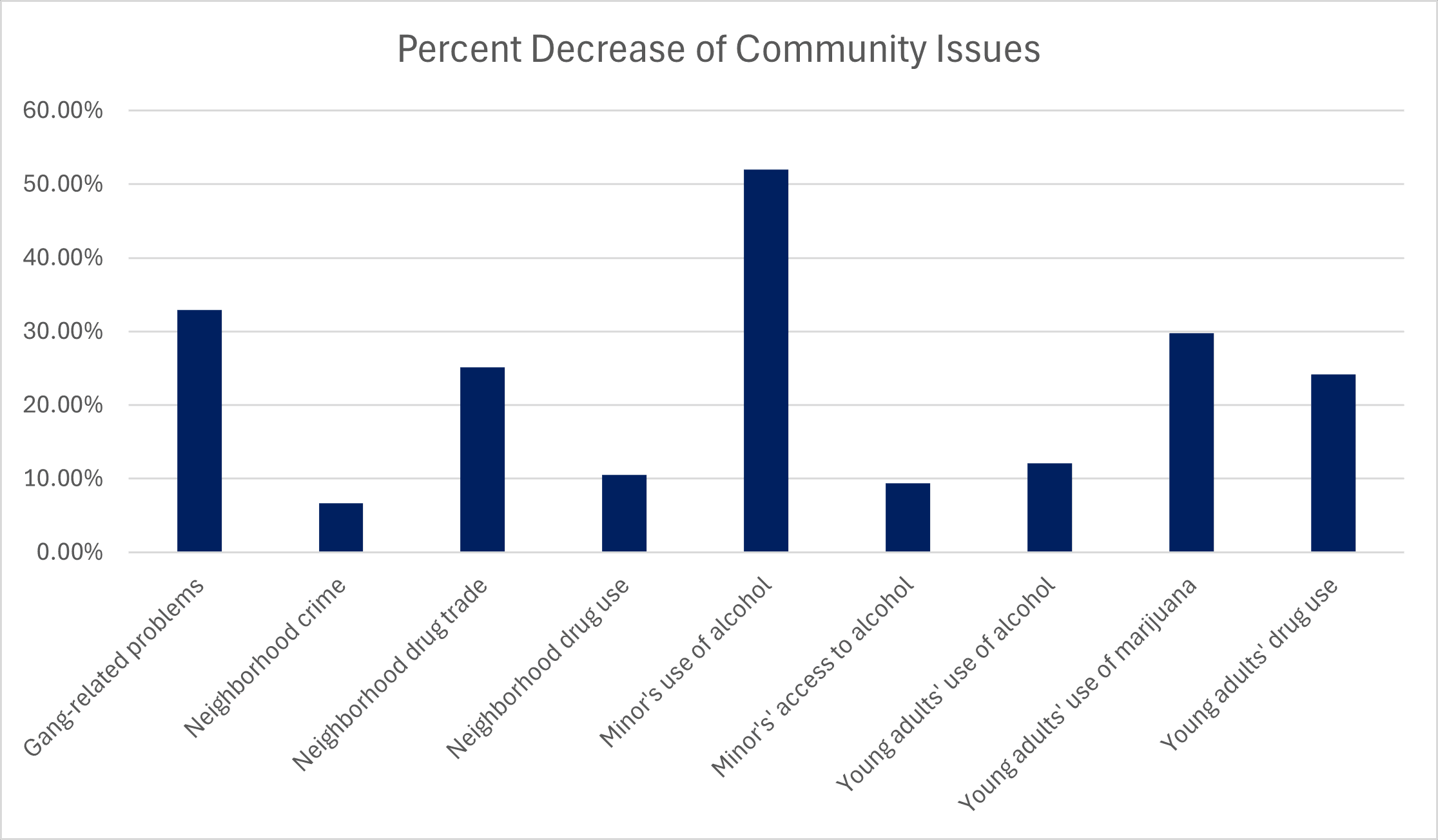Internacional
Since 2005, CADCA has been extending its mission to create safe, healthy, and drug-free communities beyond U.S. borders, bringing its expertise and commitment to the global stage. Through its International Department, CADCA empowers communities worldwide by offering a unique blend of training, technical assistance, and resources designed to support community-driven substance use prevention efforts. By leveraging their vast experience, CADCA helps international coalitions develop sustainable and effective strategies that align with the cultural and regional needs of their communities. This global outreach continues to build on the organization’s foundational goal—strengthening the ability of local communities to lead efforts that combat substance use, particularly among youth, while creating lasting, population-level change.

Apoyo a coaliciones internacionales
Through its international initiatives, CADCA partners with a diverse range of stakeholders, including national and local governments, NGOs, civic and religious groups, and community-based organizations. These collaborations are essential for establishing local coalitions and identifying the prevention resources and infrastructure needed to address substance use and misuse. By mobilizing local leaders and stakeholders, CADCA helps communities develop customized action plans that reflect their unique needs and challenges. With a focus on empowering communities, CADCA guides coalitions in identifying the root causes of substance use, implementing targeted strategies, and leveraging resources to achieve sustainable, community-driven outcomes.

Outcomes of International Coalitions
International coalitions trained and supported by CADCA have demonstrated measurable success in reducing substance use and addressing related community issues. Independent evaluations of coalitions in various countries highlight the effectiveness of their community-driven strategies.

México
From April 2017 to August 2018, an independent evaluation conducted by the Center for Interdisciplinary Health Research and Evaluation at the University of Texas, El Paso, reported a significant reduction in the past 30-day use of illicit substances among youth in Mexico. The data was collected through student surveys in 18 schools across 18 cities where community coalitions had actively intervened. These interventions employed multiple strategies, including shifting attitudes, perceptions, and community norms to reduce substance use.

Perú
In Peru, community coalitions in five districts of Lima formed between 2006 and 2011 achieved substantial outcomes. A joint evaluation by Michigan State University and the University of Kansas in 2012 showed significant reductions in the use of alcohol, marijuana, and other drugs among youth and young adults. Specifically, there was a 36% decrease in alcohol consumption, a 31% reduction in marijuana use, and a 29% decrease in the use of other drugs. The study also found substantial decreases in gang-related issues, drug sales, and crimes, further demonstrating the broad impact of these coalitions’ efforts.

International Network and Global Reach
CADCA’s support and training efforts have built an expansive international network of community coalitions dedicated to creating drug-free communities around the world. With more than 400 community coalitions spanning 29 countries across five continents, CADCA’s influence extends globally, fostering collaboration and sharing of best practices in substance use prevention.

These coalitions consist of over 13,000 active volunteer members who work to address local substance use issues with culturally relevant strategies. By providing training, technical assistance, and resources, CADCA helps these coalitions develop customized approaches that fit their specific communities, enhancing their capacity to achieve long-term, population-level outcomes.
Countries where CADCA has supported coalitions include:
África
- Cabo Verde
- Ghana
- Kenia
- Mauricio
- Senegal
- Sudáfrica
- Tanzania
- Uganda
Asia Central
- Kazajstán
- Kirguistán
- Tayikistán
- Uzbekistan
South & Southeast Asia
- Indonesia
- Pakistan
- Filipinas
Europa y Medio Oriente
- Albania
- Irak
- Italy
Central America and the Caribbean
- Costa Rica
- República Dominicana
- Guatemala
- Haití
- Honduras
- Panama
North America
- Canada
- México
South America
- Argentina
- Bolivia
- Brasil
- Colombia
- Ecuador
- Paraguay
- Perú
- Uruguay
News & Updates
The Transformation of Recreo 3 in Duran, Ecuador

Prevention Sustainability Since 2009 | Overview of the Las Palmeras Community Coalition, One of the Longest-Standing Coalitions in the Americas

Spotlighting the Association of Anti-Drug Abuse Coalitions of the Philippines, Inc. (AADAC)

Thank You to the 2023-2024 Humphrey Fellows


